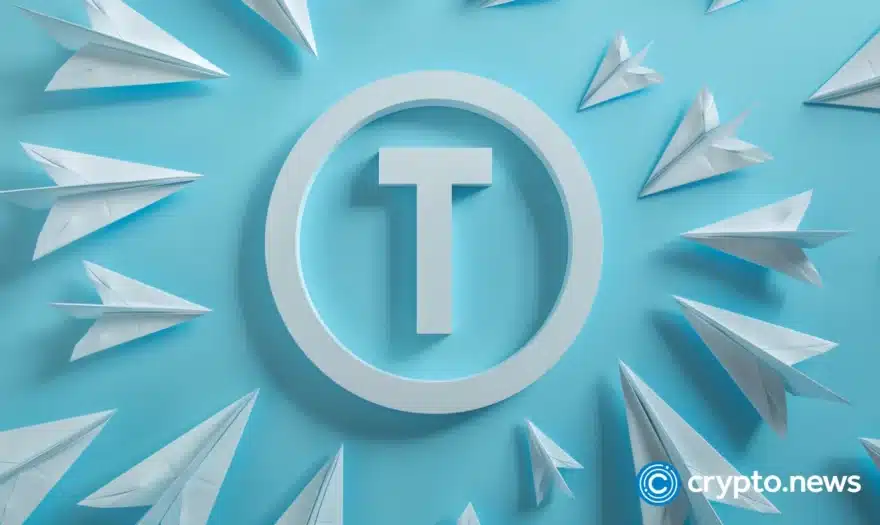A Legal View on ICO: What Are Securities Tokens and Why Regulators Are After Them

Securities tokens seem to be a more attractive investment than utility tokens as they give token holders some specific rights regarding the issuer company, e.g. voting rights, profit sharing rights, a stake in the share capital, etc.
Albeit securities tokens attractiveness, the legal model of the offering constitutes additional risks related to securities legislation. In their new post, lawless.tech, a channel devoted to covering the ongoing regulatory attempts to oversee and control the newest technologies, explains what are those risks, and why, after all, the regulators of the world are so cautious about this kind of tokens.
A Closer Look at the Howey Test
If a company plans to make a real securities offering, the lawless.team team writes, it has to meet strict statutory requirements in most jurisdictions. The securities legislation in the U.S., for instance, is based on the following concept; all investors, whether large institutions or private individuals, should have access to certain basic facts about the investment prior to buying it, and so long as they hold it. Thereby, the Securities and Exchange Commission (SEC) as a securities market regulator will carry out all actions that it would deem necessary to protect U.S. investors and the securities market in general.
Projects which sell tokens to the U.S. citizens should play it safe just not to violate the securities laws. Otherwise, the ICO may be halted, projects may be fined and, in some rare cases, founders can get a prison sentence. Thus, it’s fairly important to keep in line with the laws and abide by all rules regarding the securities offering. The tool that can help one avoid problems is called the Howey test.
As the lawless.tech team puts it, the Howey test determines whether a financial instrument is a security or not. The test consists of four components, all of which have to be met to define a token as a security in the U.S. These four components are;
- investment of money,
- in a common enterprise,
- with a reasonable expectation of profits,
- to be derived from the entrepreneurial or managerial efforts of others.
“An investment of money” states that the project’s tokens are being sold for money. The judicial practice suggests that the “investment of money” doesn’t necessarily mean cash. The SEC clearly stated that “In spite of Howey’s reference to an ‘investment of money,’ it is well established that cash is not the only form of contribution or investment that will create an investment contract.” Thereby, tokens purchased for bitcoin or ETH meet this requirement, and nearly any token sale is an investment of money since it’s a sale.
A tokenized system may be considered a “common enterprise” if the reward for any kind of effort contributed to the system (such as mining) has influence on other participants’ rewards. Any tokenized system involving efforts of their token holders to update and enhance the system is likely to be deemed a common enterprise. Moreover, a system may be treated as a common enterprise when an individual contributor’s profits depend on the issuer’s expertise.
In turn, the post goes on, the third component stipulates that an investment should be made “with a reasonable expectation of profits.” It is important to note that what the SEC means here is the expectations of the project’s investors, and not the project’s team. If investors or contributors purchase tokens expecting to sell them later for profit or hold them to get periodic payments, authorities will have the grounds to qualify said tokens as securities.
The last component states the investors expect their profits “to be derived from the entrepreneurial or managerial efforts of others,” meaning that investors expect a well-known team or a team member to develop a product that eventually generates the profit. The SEC points out the central issue as “whether the efforts made by those other than the investor are the undeniably significant ones, those essential managerial efforts which affect the failure or success of the enterprise.” So, the best way to avoid meeting this criterion is to give investors a right or an option to take part in the final product’s development (offer advice, comment on the development, vote for changes etc.). In case of an ICO, a project may allow its contributors to help develop an open source code or search bugs and exploits, so its success would depend on investors/contributors efforts as well.
Only in case the token meets all four criteria, the lawless.tech team concludes, the SEC will qualify it as a security therefore forcing the issuer to comply with the existing securities legislation.
An offering of securities tokens requires meticulous preparations and good lawyers on the project’s side as it’s fairly important not to violate the existing securities legislation. The best practices are to use various legislative exemptions that allow one to offer securities or obtain all required licenses. Still, the latter approach suggests that one uses a complicated corporate structure which is likely to require a large amount of money.
Real-life Use Cases
Blockchain Capital, for instance, has held a very successful ICO raising nearly $10 million over just six hours. According to all sources, Blockchain Capital was selling securities tokens on III Digital Liquid Venture Fund, using Regulation D 506(c) and Regulation S as an exemption from the obligation to register tokens as securities.
The lawless.tech team notes that there were rumours that Blockchain Capital allowed several investors to acquire a stake in the share capital, which has given them rights to receive dividends from the fund’s activities, but it’s hard to check if it’s true. Investors received no warranties, the tokens offered no valuable rights to the investors, and, after all, were listed only on two exchanges; Liqui and EtherDelta. Other exchanges opted to play it safe and refused to list tokens that can be deemed securities.
The DAO, on the other hand, the post says, was not that successful. The company has not registered its tokens as securities or complied with the existing securities legislation. At the same time, The DAO has promised token holders voting rights as well as profits in the form of dividends from the company’s activity thus effectively establishing its tokens as securities.
After The DAO had been hacked and approximately $60 million was stolen from the project’s smart contract, the U.S. Securities and Exchange Commission launched an investigation. According to the report, the tokens that were issued by The DAO are considered securities under the Securities Act of 1933 (“Securities Act”), and the Securities Exchange Act of 1934 (“Exchange Act”) and, thereby, The DAO has violated securities legislation as mentioned above.
Conclusion
An offering of securities tokens requires meticulous preparations and good lawyers on the project’s side as it’s fairly important not to violate the existing securities legislation. The best practices are to use various legislative exemptions that allow one to offer securities or obtain all required licenses. Still, the latter approach suggests that one uses a complicated corporate structure which is likely to require a large amount of money.
Disclaimer: This is paid content. BTCManager does not endorse any content or product on this page. While we aim at providing you all important information that we could obtain, readers should do their own research before taking any actions related to the company and carry full responsibility for their decisions, nor this article can be considered as investment advice. BTCManager and its employes are not responsible, directly or indirectly, for any damage or loss caused or alleged to be caused by or in connection with the use of or reliance on any content, goods or services mentioned in the press release.














